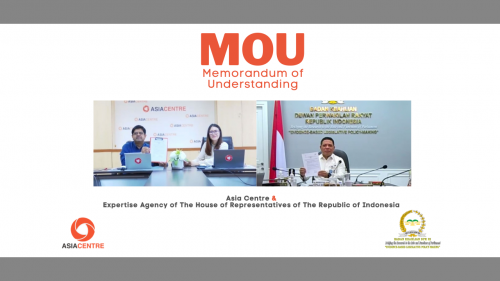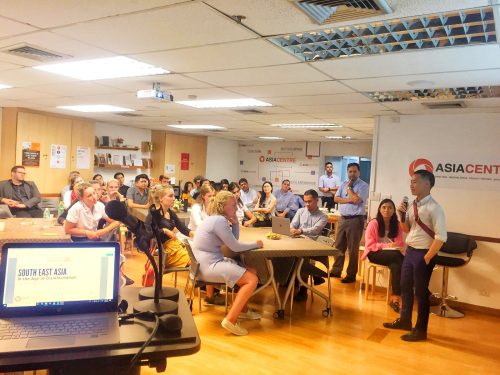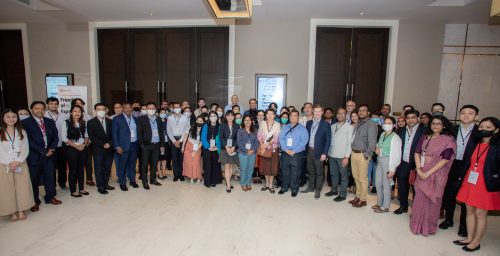The negation of Indigenous Peoples’ (IPs) identities by climate disinformation in Thailand hampers their ability to counter climate change. Given that much of climate disinformation is disseminated via the country’s so-called trusted mainstream media, Indigenous media can be one pillar in countering such narratives. This was a suggestion made by speakers during the meeting to discuss the preliminary findings from Asia Centre’s forthcoming report, “Climate Disinformation in Thailand: Negating Indigenous Peoples’ Identity”. The event was held in partnership with International Media Support (IMS) on 30th September 2025 in Chiang Mai, Thailand.
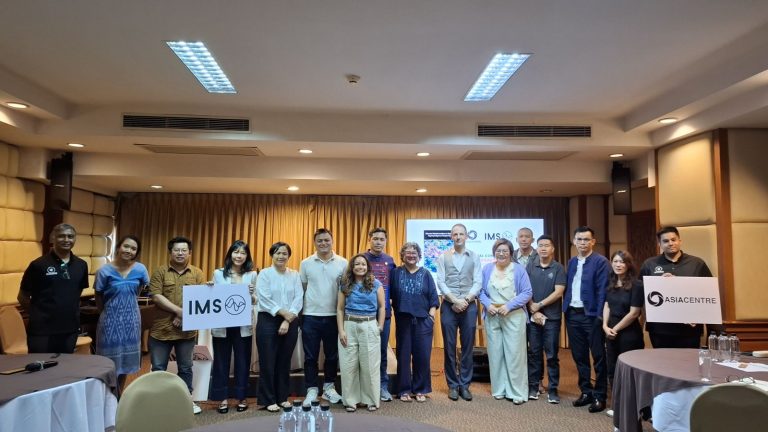
The convening gathered 17 representatives from Indigenous organisations and communities, civil society organisations, international NGOs, academia and the media.
Asia Centre’s Programme Manager, Sanjay Gathia, opened the event by emphasising the urgent need to address the consequences of climate disinformation, which has become a tool to subvert and negate the identities of IPs in Thailand.
Vanessa Chong, Programme Manager at IMS, highlighted the crucial role of the media in ensuring accurate information circulates to counter these narratives.
Following the opening, Ekmongkhon Puridej, Researcher at Asia Centre, presented the key findings of the draft report for validation and feedback.
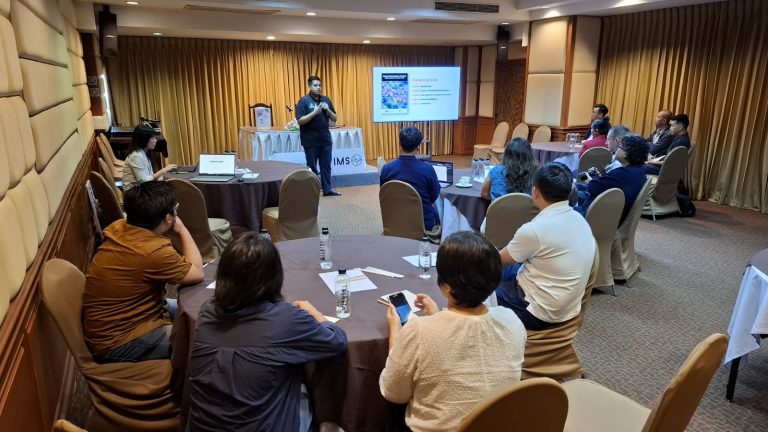
He first outlined how climate disinformation emerges against a backdrop of successive laws and policies that erase Indigenous identities. Fuelled by the digitalisation of media, climate disinformation is also used to diminish IPs’ roles in environmental stewardship and knowledge.
Second, he outlined the four types of climate disinformation in Thailand: one-sided reporting on climate change, greenwashing, false climate solutions and scapegoating IPs as drivers of climate change. Collectively, he stressed that climate disinformation operates within a larger context where official communications rely on partial truths – malinformation. This allows state and corporate entities to conceal environmental damage while portraying IPs as forest destroyers and restricting their land access.
Third, he evaluated the detrimental impacts of climate disinformation on IPs in Thailand, which entails their exclusion from decision-making, criminalisation, forced evictions and experiences of intimidation and violence. Collectively, these issues reinforce the systemic negation of Indigenous identities, undermining their crucial role in mitigating climate change.
Finally, Mr Puridej outlined the report’s main recommendations, intended for diverse stakeholders such as UN bodies, INGOs, government ministries, CSOs, media, technology companies and Indigenous communities. He emphasised that these recommendations must prioritise Indigenous self-determination and identity.
The presentation was followed by a roundtable discussion, moderated by Vanessa Chong. Four discussants shared their insights, drawing from both the report and their personal experiences, to explore the findings and their implications in managing climate governance.
- Phnom Thano, Indigenous Media Network (IMN), stressed that Indigenous Peoples and Indigenous civil society organisations (CSOs) must strategise and develop communication plans to use media as a tool for asserting their identities and climate roles against dominant narratives informed by climate disinformation. He added that partnerships with non-Indigenous CSOs could amplify IP voices more effectively.
- Pyrou Chung, Knowledge for Development Foundation, highlighted that climate disinformation is rooted in colonial histories of resource extraction, where Indigenous Peoples were blamed to justify resource seizure. She underlined the importance of asserting both their knowledge and identity to counter climate disinformation while ensuring Indigenous Peoples control how their knowledge is represented.
- Marco Haenssgen, Department of Social Science and Development of Chiang Mai University, emphasised that Indigenous narratives must reflect modern expressions of Indigeneity to assert identity within a rapidly changing climate and social landscape. By foregrounding resilience, adaptation and innovation, Indigenous communities can demonstrate their role in contemporary climate action.
- Nina Sangma, International Land Coalition, frames climate disinformation as deliberately designed to silence Indigenous Peoples, driven by legacy media, the state and big tech, all of whom profit from erasing alternative worldviews. The role of Indigenous CSOs in this regard is to break dependency on mainstream outlets and build transboundary solidarity to assert their identity and place in climate action.
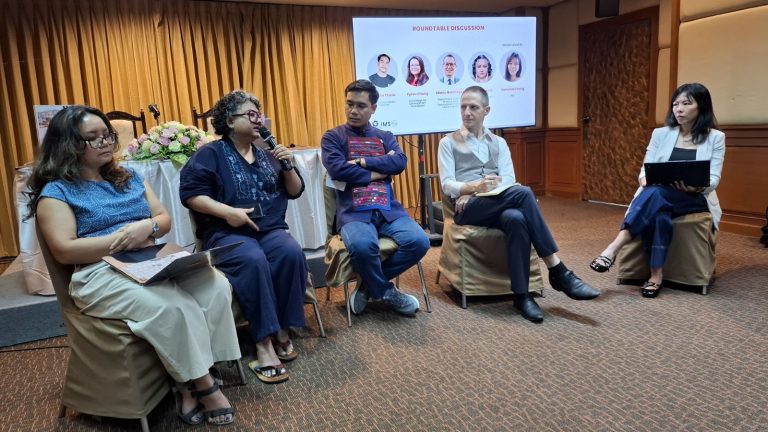
In closing, Sanjay Gathia thanked IMS, panellists and participants for their valuable contributions. He noted that the feedback was well received, and relevant suggestions will be incorporated into the final report.
Watch TikTok highlights of the event here.

